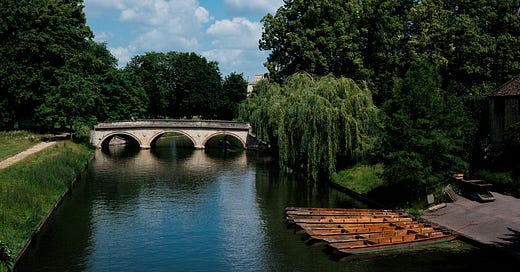When I was writing The Perfect Bet, I came across the story of Andrew Black, who’d spent the 1990s as a programmer at the UK Government Communications Headquarters in Gloucestershire. As he later told the Guardian:
At GCHQ they kicked me out at five o’clock because none of us was allowed to stay on the premises after that. I would go home to my little farmhouse in the total back of beyond with absolutely no friends at all. The boredom was horrendous, but mentally I became really quite productive.
It certainly was productive. Black would go on to found Betfair, whose peer-to-peer approach to betting has transformed online gambling.
Black hasn’t been the only one to benefit from boredom. J.K. Rowling first came up with the idea for Harry Potter while on a delayed train from Manchester to London in 1990. And Mary Shelley invented Frankenstein during the ‘year without a summer’, after a volcanic eruption led to global cooling in 1816.
As I read Black’s story, it struck me that – in a much less lucrative way – I’d gone through a similar process during my PhD. Because Cambridge terms are so short, and college events and activities wind down in the holidays, it’s somewhat of a ghost town for much of the year. Which left me with a lot of time on my hands. I wasn’t unhappily lonely, but most evenings I was alone and at risk of severe boredom.
So I started writing more. I wrote numerous popular science articles (mostly rejected by editors). I wrote short stories (mostly rejected). I wrote the best part of a novel (definitely rejected). I kept writing, ignoring rejections, getting slowly better.
Then, in the final stages of my PhD, I entered the Guardian/Wellcome Science Writing competition. And I won. Within a year, I had a book deal for The Perfect Bet.
Looking back, I sometimes wonder whether my writing career would have been possible without that early solitude and boredom. Without being forced to come up with a big, ambitious project to fill the gap. Ironically, those non-work hours as a PhD student might have taught me nearly as much as the thesis itself.
Cover image: Chris Boland via Unsplash




I’m in the second year of Michigan’s epi PhD. (My co-mentors are Drs. Emily Martin and Arnold Monto.) Allowing myself to feel bored is my second-greatest struggle lol. The first is causalgia 🙃
Great point to make. I understood the role of boredom in creativity when I read something by the philosopher B.Russell. The trick is to try something new at a simple level if bored. Then let it slowly develop.
This is a typical "Gardeners approach" to cultivation but my maths has reached a high level for an early seventy-year-old.